News
-
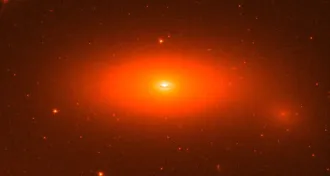 Astronomy
AstronomyRelic of early universe found nearby
A galaxy little changed since the dawn of the universe shows up in our celestial neighborhood.
-
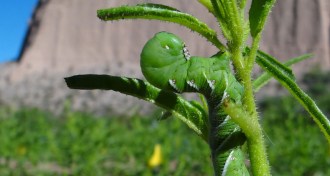 Animals
AnimalsSmoker’s breath saves caterpillars’ lives
Larvae of the tobacco hornworm caterpillar exhale nicotine, driving away predatory spiders.
By Susan Milius -
 Health & Medicine
Health & MedicineVitamin E might limit Alzheimer’s decline
A trial of vitamin E in elderly veterans with Alzheimer’s shows promise for those in the early stages of the disease.
By Nathan Seppa -
 Neuroscience
NeuroscienceBad memories fade with a short jolt
Research illustrates the vulnerability of the brain’s information storage.
-
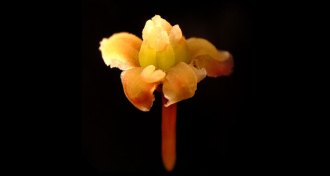 Plants
PlantsLone survivor of ancient flowers is gluttonous gene consumer
The rare Amborella shrub has engulfed whole genomes from other species.
By Susan Milius -
 Life
LifeSolving the mystery of Alzheimer’s start
Molecular evildoers team up to launch neural destruction.
-
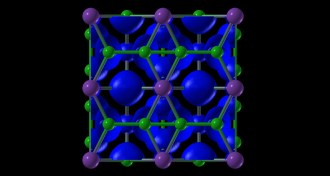 Chemistry
ChemistrySalt spices up chemistry
Hot, compressed sodium chloride stretches the fundamental rules of matter.
By Beth Mole -
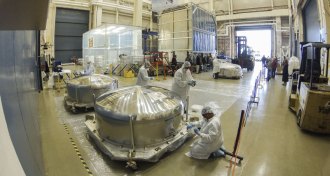 Planetary Science
Planetary ScienceExoplanet mass revealed in light
A new method could help identify habitable planets.
By Andrew Grant -
 Neuroscience
NeuroscienceNarcolepsy may be an autoimmune disease
Narcolepsy occurs when wayward immune forces launch an attack on brain cells responsible for wakefulness, a new study suggests.
By Nathan Seppa -
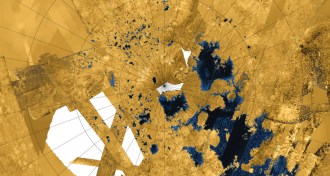 Planetary Science
Planetary ScienceSinkholes, tectonics may have shaped Titan’s lakes and seas
A map of Saturn’s largest moon reveals clues about the object's landscape.
By Meghan Rosen -
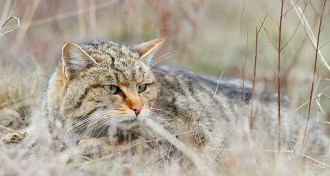 Animals
AnimalsChina trumps Near East for signs of most ancient farm cats
Earliest evidence found for grain as a force in feline domestication.
By Susan Milius -
 Health & Medicine
Health & MedicineDog dust may benefit infant immune systems
Microbes from pet-owning houses protected mice against allergy, infection.
By Nathan Seppa